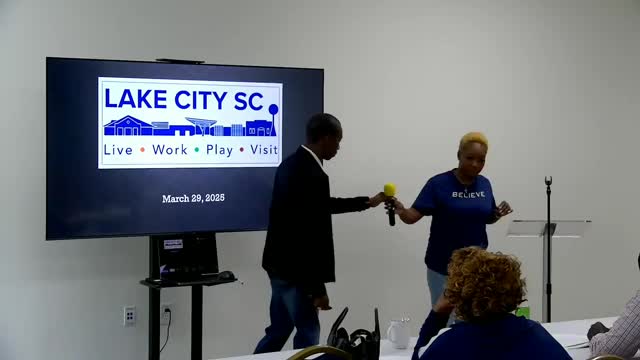Lake City finance director warns of cash‑flow shortfall, proposes bond and tax options
Get AI-powered insights, summaries, and transcripts
Subscribe
Summary
At a Lake City budget workshop finance director Brandon Carter outlined a cash‑flow shortfall, proposed seeking a bond and possible tax changes, and said a forensic audit procurement is underway; no formal votes were taken.
Brandon Carter, Lake City finance director, told a budget workshop the city faces an immediate cash‑flow problem and is considering options including a bond and targeted tax changes to shore up finances.
Carter said the proposed fiscal 2025–26 budget is about "95% complete" and that staff have received five bids for a planned forensic audit. He said the central problem is cash flow rather than overall spending levels and that he will work with the incoming interim city manager to present detailed financials to council.
The finance director said he met individually with department heads and that employee raises are included in the draft budget; public‑safety raises will be distributed based on performance evaluations by the chiefs and command staff. Carter also said the city is addressing staff retention in public works and maintenance by proposing higher starting pay and targeted raises.
Carter identified the city's main operating bank as First Citizens, said Regions holds bonds and trust accounts, and that the municipality currently maintains multiple restricted accounts (hospitality tax, reserves, etc.) alongside a single operating account. He said there are about 10–11 active city credit cards held by department heads and that the cards are currently secured in the finance office while the administration decides next steps.
Luke, a city staff member who provided a numerical breakdown during the meeting, calculated that switching the city's employee insurance pool reduced annual premium exposure: an $800 per‑head monthly cost for the larger pool was lowered to $7.10 per employee in the revised plan, which Carter and Luke said yields roughly $10,800 in monthly savings (about six figures annually) for the larger employee base the city uses in its calculations.
Carter gave conservative revenue projections: he said staff now project roughly $10.9 million in general‑fund revenue for 2025–26, up from an earlier $10.4 million estimate, and a headcount of about 20 full‑time employees. He said last year the city budgeted about $17.7 million and that his draft shows about $16.8 million for 2025–26 after accounting for capital needs, the forensic audit, and other adjustments.
On remedies, Carter said annexation and other revenue measures will be explored and that pursuing a bond is being discussed as a way to provide breathing room; he framed a possible tax adjustment as a tool needed to secure bond approval. He said final choices and any tax proposal would come through the city administrator and require council action.
Several department heads raised operational considerations. Chief Miles (police) noted that vehicles proposed for sale cannot be disposed of unless replacements are provided, and staff discussed a citywide fleet lease option as a way to smooth vehicle replacement and maintenance costs. Public works staff said the city has lost multiple employees to higher pay outside the city and that competitive starting salaries will be necessary to retain operators.
Carter closed by saying he will present the forensic‑audit bid spreadsheet to the mayor, who will bring it to council, and that he will work with the interim manager to provide the full set of actuals and cash‑flow scenarios for a follow‑up council discussion. There was no formal vote at the workshop.
